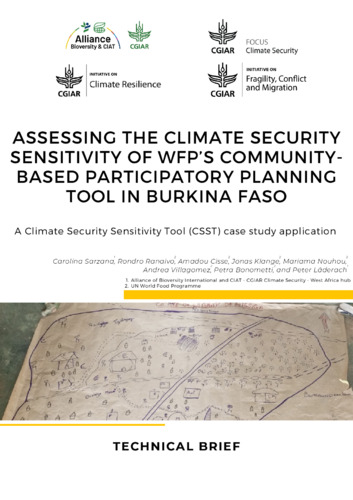Assessing the climate security sensitivity of WFP’s community-based participatory planning tool in Burkina Faso: A Climate Security Sensitivity Tool (CSST) case study application
Abstract
This Info Note reports on the CSST case study application for WFP’s Communal Participatory Planning (PCP) program in Centre Nord and Plateau Central regions in Burkina Faso. It highlights the recommendations formulated by the CSST for the implementation of this programme. The CSST analysis indicates the need to address programmatic shortcomings in the Centre Nord region, particularly related to the Economic Development, Resource Sustainability and Enhancing Knowledge mechanisms, while highlighting its significant peace co-benefits delivered through social cohesion activities, and resilience building. The recommendations emphasize enhancing economic development through communal earnings to promote stability, enforcing forest protection to prevent armed groups from exploiting resources and escalating conflicts, as well as integrating diverse adaptation strategies to support the integration of IDPs and reduce communal conflicts. These targeted actions aim to address the complex challenges of climate change, security, and resource management present in the region. The CSST analysis did not underscore any relevant recommendation for the case of Plateau Central, as the implementation of the PCP program appeared as coherent with the contextual risk factors in the region.

